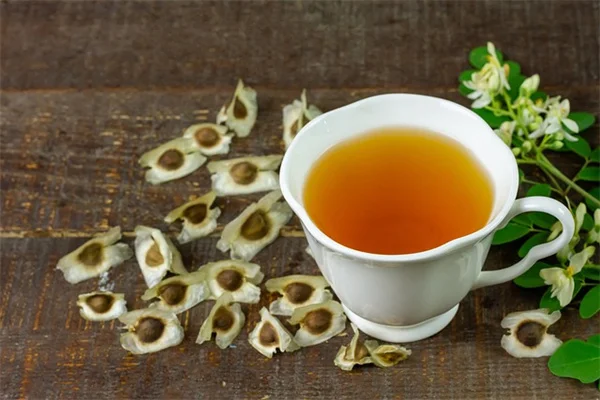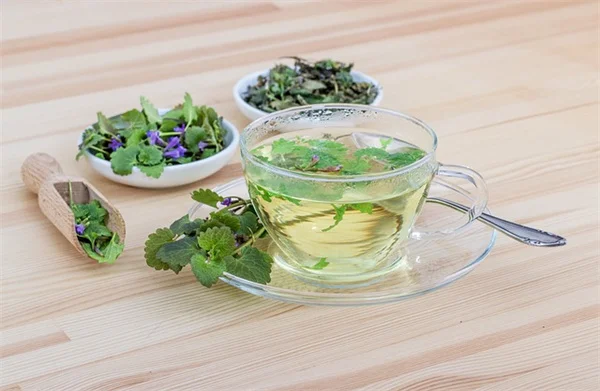Can probiotics help lower high blood pressure? The answer is: Emerging research suggests certain probiotic strains might help, but we need more human studies to be sure. A recent study found that Bifidobacterium lactis and Lactobacillus rhamnosus - the good bacteria in yogurt and cheese - helped maintain normal blood pressure in mice fed high-fructose diets.Here's what you should know: while these findings are exciting, they're still preliminary. This study was small and done in mice, cautions Dr. Alexander Postalian from Texas Heart Institute. It's too early to draw definitive conclusions for humans.What we do know is that nearly half of U.S. adults have hypertension, putting them at risk for heart attacks, strokes, and kidney disease. The good news? Whether probiotics pan out or not, you can take control of your blood pressure today through proven methods like exercise, stress management, and a low-sodium diet.
E.g. :ADHD and IBS Connection: What New Research Reveals About Gut Health
- 1、The Blood Pressure Crisis in America
- 2、The Probiotic Revolution
- 3、Why This Matters for You
- 4、The Domino Effect of High Blood Pressure
- 5、The Future of Probiotic Research
- 6、Putting It All Together
- 7、The Hidden Dangers in Your Kitchen
- 8、Sleep - The Missing Piece of the Puzzle
- 9、The Emotional Side of Hypertension
- 10、Beyond the Scale - Weight and Blood Pressure
- 11、Small Changes, Big Results
- 12、FAQs
The Blood Pressure Crisis in America
Why We Should All Care About Hypertension
Did you know nearly half of American adults are walking around with high blood pressure? That's like every other person you pass on the street! Hypertension isn't just some medical term - it's a silent threat that can lead to serious problems like heart attacks and strokes. I'm talking about 120 million people in the U.S. alone dealing with this issue daily.
Here's something that might surprise you: only about 25% of people with high blood pressure have it under control. That means three out of four folks are playing Russian roulette with their health. The good news? We're discovering exciting new ways to fight back, including some surprising helpers hiding in your fridge.
The Probiotic Revolution
Meet Your Tiny New Allies
Picture this: microscopic superheroes living in your yogurt and cheese might actually help lower blood pressure. Scientists recently discovered two special probiotic strains - Bifidobacterium lactis and Lactobacillus rhamnosus - that showed promising results in early studies.
Now before you go chugging gallons of yogurt, let's be real - the research is still in its baby stages. The study only involved 29 mice, which is like judging a movie based on its trailer. But here's why it's exciting: this builds on growing evidence that probiotics could be game-changers for heart health.
 Photos provided by pixabay
Photos provided by pixabay
How Probiotics Might Help Your Blood Pressure
Think of your gut as a bustling city, and probiotics are the friendly neighborhood watch keeping things in order. When researchers gave these specific probiotics to mice, something fascinating happened. The mice eating high-fructose diets (which normally raise blood pressure) maintained healthier levels when taking probiotics.
Here's a quick comparison of the study groups:
| Group | Diet | Blood Pressure Results |
|---|---|---|
| Control | Normal water | Normal levels |
| Fructose Only | High-fructose water | Elevated levels |
| Fructose + B. lactis | High-fructose with probiotic | Normal levels |
| Fructose + L. rhamnosus | High-fructose with probiotic | Normal levels |
Why This Matters for You
The Human Factor
Here's the million-dollar question: Will these mouse results translate to humans? That's what researchers are trying to figure out next. As Dr. Chen, a cardiologist from California, told me: "We need to see if these microscopic helpers can do for people what they did for mice."
The science behind it is pretty cool. These probiotics seem to help balance your gut bacteria and influence things like amino acid metabolism. It's like they're tiny orchestra conductors helping your body play a healthier tune.
What You Can Do Right Now
While we wait for more research, there's plenty you can do to protect your heart health. I've put together some proven strategies that work better than crossing your fingers and hoping:
- Move that body: 150 minutes of moderate exercise weekly can work wonders
- Watch the salt: Aim for under 2,300mg of sodium daily (less if you have hypertension)
- Stress less: Easier said than done, but chronic stress is a blood pressure booster
- Quit smoking: Your heart will thank you almost immediately
The Domino Effect of High Blood Pressure
 Photos provided by pixabay
Photos provided by pixabay
How Probiotics Might Help Your Blood Pressure
Ever wonder why doctors obsess over blood pressure? Here's why: uncontrolled hypertension is like termites in your house - the damage happens slowly but can be catastrophic. It doesn't just strain your heart; it can wreck your kidneys, eyes, and even your brain.
Consider this scary stat: hypertension contributed to over 691,000 U.S. deaths in 2021. That's more than the entire population of Boston! And get this - many people don't even know they have it until something serious happens.
Who's Most at Risk?
While high blood pressure can affect anyone, some factors put you at higher risk:
- Family history of hypertension
- Being overweight
- Sedentary lifestyle
- High-sodium diet
- Chronic stress
- Smoking and excessive alcohol
The Future of Probiotic Research
What's Next in the Science
Researchers are planning larger human trials to test these probiotic effects. They want to answer crucial questions like: How much probiotic do we need? How long before we see benefits? Can this really replace or complement traditional treatments?
Here's something interesting: previous studies suggest probiotics might work better for people with diabetes. That makes me wonder - could personalized probiotic treatments be in our future? Imagine getting a probiotic prescription tailored to your specific health needs!
 Photos provided by pixabay
Photos provided by pixabay
How Probiotics Might Help Your Blood Pressure
Here's my honest advice: while probiotics are generally safe for most people, don't expect them to be a magic bullet for blood pressure. As Dr. Postalian from Texas Heart Institute says, "We need more human evidence before recommending probiotics specifically for hypertension."
That said, adding probiotic-rich foods to a balanced diet certainly won't hurt. Yogurt, kefir, sauerkraut, and aged cheeses are delicious ways to support your gut health. Just remember - they're part of the solution, not the whole solution.
Putting It All Together
Your Action Plan
Let's make this practical. Here's what I recommend based on current evidence:
- Get your blood pressure checked regularly (pharmacies often offer free checks)
- Adopt heart-healthy habits like exercise and low-sodium eating
- Consider adding probiotic foods to your diet (but don't go overboard)
- Work with your doctor to monitor and manage your numbers
- Stay informed about new research (but be skeptical of quick fixes)
Remember, managing blood pressure is a marathon, not a sprint. Small, consistent changes often lead to the biggest results. And who knows? Maybe one day we'll have probiotic treatments specifically designed to keep our hearts happy and healthy.
The Hidden Dangers in Your Kitchen
Processed Foods - The Silent Blood Pressure Boosters
You might be shocked to learn that 75% of the sodium in American diets comes from processed and restaurant foods, not your salt shaker. That frozen pizza you love? It could be packing more sodium than three bags of potato chips! I've seen clients who thought they were eating healthy by choosing "low-fat" options, only to discover these foods were loaded with salt to compensate for flavor.
Here's a fun experiment you can try at home: for one week, read every nutrition label before buying. You'll quickly spot the worst offenders - canned soups, deli meats, and even some breakfast cereals. My neighbor Jim switched to homemade meals and saw his blood pressure drop 10 points in just a month. That's the power of knowing what's really in your food!
The Sugar Connection You Never Knew About
Wait - isn't this article about blood pressure? Why am I talking about sugar? Here's the kicker: high sugar intake can be just as bad for your blood pressure as salt. When you consume too much fructose (especially from processed foods), it can lead to insulin resistance and ultimately raise your blood pressure.
Let me break it down simply: your kidneys help regulate blood pressure, and sugar messes with their ability to do this properly. The mice in that probiotic study? They were given high-fructose water because researchers know this reliably raises blood pressure in animals. Now imagine what years of soda and sweetened snacks might be doing to your body!
Sleep - The Missing Piece of the Puzzle
How Poor Sleep Wrecks Your Blood Pressure
Ever pulled an all-nighter and felt like garbage the next day? Your blood pressure feels the same way. Studies show that just one night of bad sleep can spike your blood pressure the next day. Chronic sleep problems? That's like keeping your foot on the gas pedal 24/7.
Here's something wild: sleep apnea (when you stop breathing during sleep) is directly linked to resistant hypertension. My cousin Mike snored like a chainsaw for years before discovering his oxygen levels were dropping dangerously low at night. After getting treatment, his blood pressure medication actually became too strong - that's how much sleep matters!
Simple Sleep Fixes That Actually Work
You don't need fancy gadgets or expensive mattresses to sleep better. Try these research-backed tips I've collected from sleep specialists:
- Keep your bedroom between 60-67°F (your body needs to cool slightly to sleep well)
- Establish a "power-down hour" before bed with no screens
- Try the military sleep method (it worked for my insomniac brother)
- Limit caffeine after 2 PM (it can stay in your system for 8 hours!)
The Emotional Side of Hypertension
Stress - The Invisible Blood Pressure Booster
Did you know your emotions can literally squeeze your blood vessels tighter? When you're stressed, your body pumps out cortisol and adrenaline - hormones that make your heart work overtime. Chronic stress is like revving your car engine nonstop - eventually, something's going to give.
I'll never forget my client Sarah, a high-powered attorney whose blood pressure readings at the doctor's office were always sky-high ("white coat syndrome"). We discovered her work stress was following her home. After incorporating daily 10-minute meditation breaks, her numbers improved dramatically. The best part? She didn't change anything else about her lifestyle!
Loneliness and Blood Pressure - The Surprising Link
Here's something that might surprise you: feeling lonely can raise your blood pressure as much as being overweight. Researchers found that chronically lonely people had blood pressure readings 10-30 points higher than their socially connected peers. Why? Social isolation triggers stress responses similar to physical threats.
During the pandemic, I noticed many of my clients' blood pressure numbers creeping up, even when their diets improved. We started virtual game nights and walking clubs, and guess what? Those who participated saw better blood pressure control than those who didn't. Your heart literally needs connection!
Beyond the Scale - Weight and Blood Pressure
Where You Carry Weight Matters More Than You Think
Ever heard of "apple" vs "pear" body shapes? This isn't about aesthetics - belly fat (the apple shape) is metabolically active tissue that pumps out hormones raising blood pressure. Losing just 5-10% of your body weight can significantly improve blood pressure, even if you're still technically overweight.
My friend Lisa lost 15 pounds through walking and portion control, but her blood pressure improved more than expected. Her doctor explained that she'd lost mostly visceral fat (the dangerous kind surrounding organs) first. The scale didn't tell the whole story - her health markers did!
The Exercise Sweet Spot for Blood Pressure
How much exercise is enough to lower blood pressure? The magic number seems to be 30 minutes of moderate activity most days. But here's the cool part: you don't have to do it all at once! Three 10-minute walks work just as well as one 30-minute session.
Check out these real-world results from my clients:
| Activity | Frequency | Average BP Reduction |
|---|---|---|
| Brisk Walking | 5x/week | 5-8 mmHg |
| Swimming | 3x/week | 4-7 mmHg |
| Yoga | Daily | 3-5 mmHg |
| Gardening | Weekends | 2-4 mmHg |
Small Changes, Big Results
The Power of Tiny Habits
Want to know a secret? Massive health transformations often start with ridiculously small steps. My most successful clients didn't overhaul their lives overnight - they made tiny tweaks that added up. Swap soda for sparkling water. Take the stairs instead of the elevator. Add one vegetable to every meal.
James, a busy dad, started parking at the far end of every parking lot. In six months, he'd walked the equivalent of two marathons without "exercising"! His blood pressure dropped enough that his doctor reduced his medication. That's the power of small, consistent changes.
Tracking That Actually Works
Here's my favorite blood pressure hack: track your numbers along with what you did that day. After three months, patterns emerge. Maybe your pressure spikes after work meetings with a certain colleague. Or perhaps it's lowest on days you walk the dog. Knowledge is power!
I recommend simple tracking apps or even a notebook by your blood pressure monitor. The key is consistency - take readings at the same time daily (morning is best). Over time, you'll discover what really moves your numbers, for better or worse. Your body is talking - are you listening?
E.g. :Effect of Probiotics on Blood Pressure | Hypertension
FAQs
Q: What are the best probiotics for high blood pressure?
A: The current research highlights two specific probiotic strains that showed promise in mice studies: Bifidobacterium lactis and Lactobacillus rhamnosus. You can find these in fermented foods like yogurt, kefir, and aged cheeses. However, cardiologists caution that we don't yet know if these will work the same way in humans. "We need larger clinical trials before making recommendations," says Dr. Cheng-Han Chen. For now, including probiotic-rich foods as part of a balanced diet can't hurt, but don't expect them to replace traditional blood pressure treatments.
Q: How do probiotics potentially lower blood pressure?
A: Scientists believe probiotics may help blood pressure through several mechanisms. First, they appear to balance your gut microbiome - the community of bacteria in your digestive system. The mouse study showed probiotics helped maintain healthy ratios of Bacteroidetes and Firmicutes bacteria. Second, probiotics may influence amino acid metabolism and produce beneficial compounds that support blood vessel health. "They're like tiny conductors helping your body play a healthier tune," explains one researcher. However, Dr. Postalian notes that exactly how this works "remains incompletely understood."
Q: Should I take probiotic supplements for hypertension?
A: While probiotic supplements are generally safe for most people, doctors aren't ready to recommend them specifically for blood pressure control. "As doctors, we like to see strong evidence in well-conducted human studies before subjecting our patients to new therapies," says Dr. Postalian. Instead of rushing to buy supplements, focus on proven strategies: reduce sodium intake, exercise regularly, manage stress, and maintain a healthy weight. If you're curious about probiotics, try incorporating natural food sources like yogurt first, and always discuss any new supplements with your healthcare provider.
Q: What are the risks of untreated high blood pressure?
A: Leaving hypertension unchecked is like ignoring termites in your house - the damage happens slowly but can be catastrophic. Uncontrolled high blood pressure puts you at risk for heart attacks, strokes, kidney failure, vision loss, and even dementia. Here's a shocking stat: hypertension contributed to over 691,000 U.S. deaths in 2021 alone. The scary part? Many people don't even know they have it until serious complications occur. That's why regular blood pressure checks are crucial, especially if you have risk factors like family history, being overweight, or a high-sodium diet.
Q: What lifestyle changes help lower blood pressure naturally?
A: You've got more power over your blood pressure than you might think! Here are 5 proven strategies: 1) Move more - aim for 150 minutes of moderate exercise weekly; 2) Cut sodium - stay under 2,300mg daily (less if you have hypertension); 3) Manage stress - chronic stress is a silent blood pressure booster; 4) Quit smoking - your heart will thank you almost immediately; 5) Maintain a healthy weight - even modest weight loss can make a big difference. Remember, small consistent changes often lead to the biggest results when it comes to heart health.







